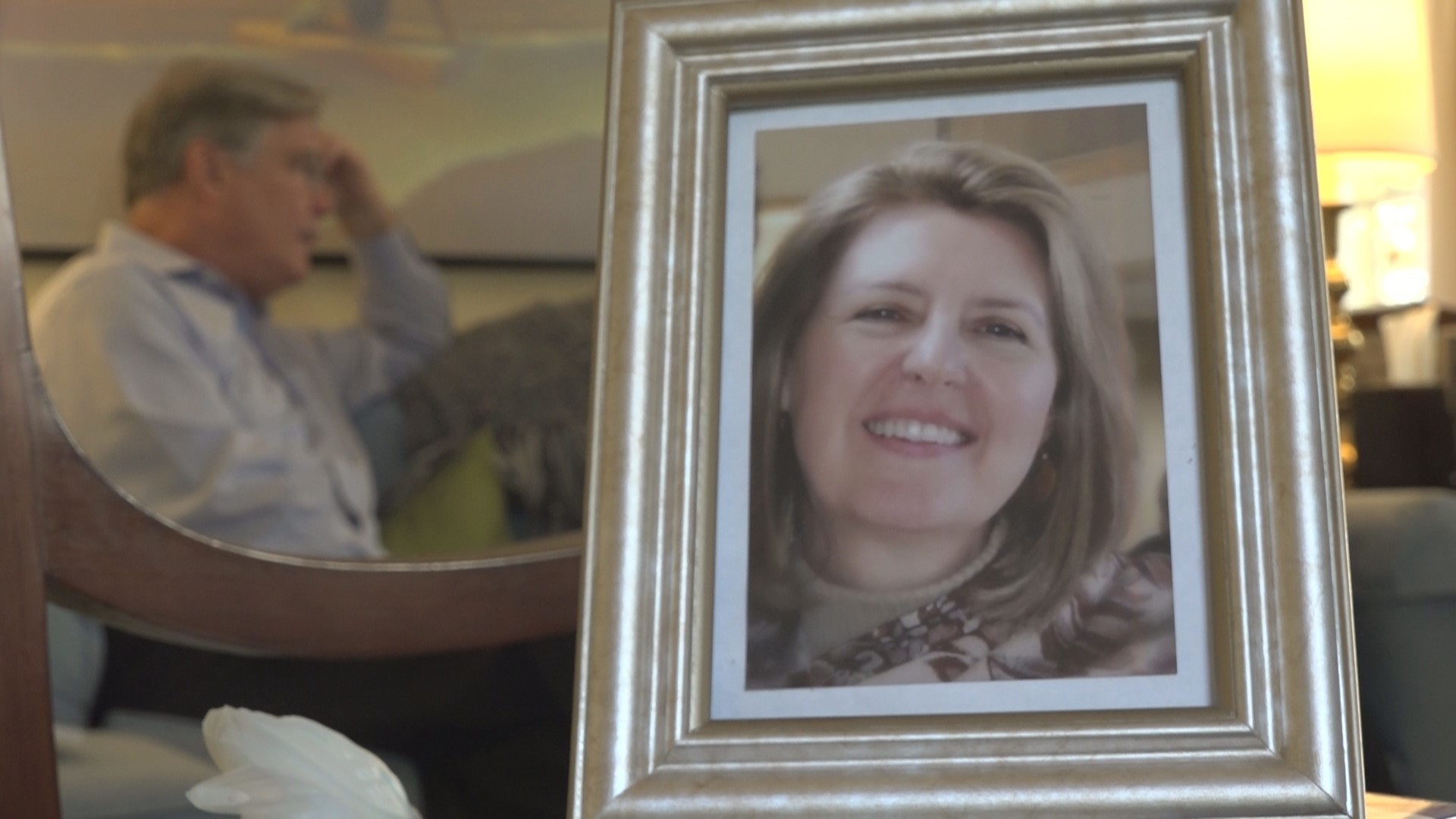AUSTIN, Texas — "Kinsloe and I married on November 1, 2014, and 22 days later received a stage four diagnosis of metastatic melanoma with a prognosis of approximately six months to live."
It wasn't the blissful start to married life Garrick Colwell hoped for but he took the vows, in sickness and in health, seriously. As a grief educator and longtime hospice volunteer, Colwell jumped into action to help his bride.
"I did some research here locally and found a death doula and I thought, ‘well, what is a death doula?’ And so, I Googled that and I found that the person who basically started the death doula movement lived here in Austin. Her name is Deanna Cochran, so of course I called her."
Deanna Cochran is a hospice and oncology nurse who's been a death doula since the early 2000s. "As a doula you're walking with people through the unknown,” Cochran said. “The ultimate goal was to be there so they're not alone. People get to relax, and they get to be the mother, the daughter, the husband and the wife."
Cochran and Colwell started meeting for tea to talk about what a death doula does. At times, Kinsloe would also join them. Colwell said, "it was very helpful to her because it gave her a space with someone, to be able to process and explore what she thought was taking place as she approached the end of her life."
Through experimental treatments, Kinsloe held on far longer than her doctors thought she would. She died in her husband’s arms on February 12th, 2019. "And I said, all you need to do is walk out. Your mother and your father, and the Mahanta will be there to greet you and I will see you in my dreams. She took two more breaths and she was gone."
Now, he devotes himself to the organization they started together, Kitchen Table Conversations, where he helps people with their advanced care planning. Colwell also educates people and their families about end of life options and support, like death doulas. "We only die once as far as we know, and as a result, you know it's uncharted territory for us."
When Cochran isn’t with her clients, she’s helping train death doulas all over the world through her company, Certified Care Doula. She is also part of the National End-of-Life Doula Alliance (NEDA), a national non-profit organization that supports doula practitioners, trainers and interested parties. Their mission is to inspire positive, creative change in American death practices by creating high standards, ethical and practical guidelines and rich networking opportunities for all end-of-life doulas.
Cochran says the pandemic made things harder for death doulas, since they weren't able to physically be with their clients. But the service was still in high demand because so many more people were dying. According to the Centers for Disease Control and Prevention, 3.3 million Americans died in 2020, up 17% from the year before.
"It's uncomfortable to sit with people who are suffering, who are sad about leaving. It's indescribable, it's overwhelming. Many times, I pull over when I leave a house and just sob. Because you watch love. You're in the midst of love that is going to change,” Cochran explains. She says her personal mission is to hold space for clients as they approach death and be there for their loved ones, after they’re gone.
"It's not that we make people less afraid we can't do that, right, and it's not my job to do that. What you're doing is being there for people. Most people it’s the emotional companionship and the feeling that somebody's got my back."

